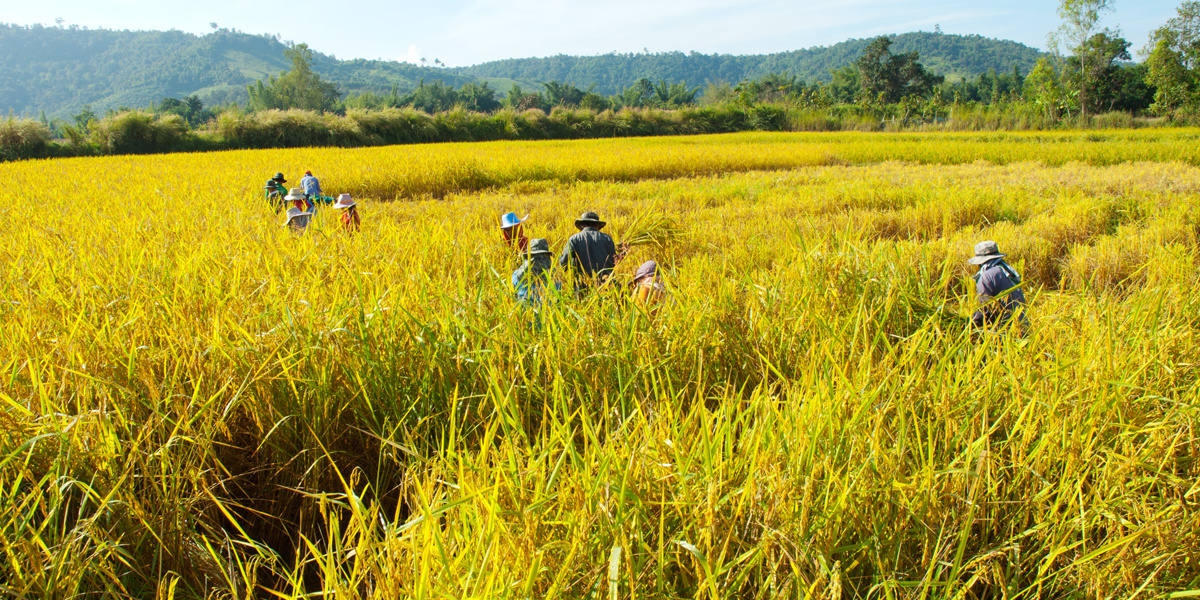My Journey: Finding a Career with Impact

This featured post in written by Audrey Ball, the former president of the Washington University in St. Louis Net Impact Chapter and current Continuous Improvement Coordinator for Monsanto. Here she describes her path to landing a career with impact. Hear more about the sustainability initiatives Monsanto is pursuing at the 2017 Net Impact Conference, taking place October 26-28 in Atlanta, GA.
Monsanto certainly knows the importance of engaging with consumers and how that relates to building accurate consumer knowledge and protecting a brand. Today engagement with stakeholders along the entire value chain matters. Companies are accountable for not just delivering profit to its shareholders but for delivering solutions to issues that shape the modern world. For Monsanto, sustainability has long been at the heart of business. But today it joins companies in more clearly defining and communicating its purpose, and with innovation, leadership, and collaboration, business is finding solutions.
I discovered Monsanto’s mission while on my own journey to find purpose in my career. During college, I served as chapter president of Net Impact and began searching the business world for solutions to global problems, such as climate change and social inequality. Of all the industries that add to our human footprint, I decided to take a closer look at agriculture.
Monsanto had been a long-time sponsor of Net Impact, yet I only understood their commitment to sustainability after organizing a tour of their technology headquarters with my NI chapter. Agriculture and related land use change produce 24% of the world’s greenhouse gas emissions, but could farming also be a part of the solution?
I quickly learned the answer was “yes.” Advanced breeding and biotechnology allow us to produce significantly more crops on less land with less water, and not only that, alternative farming techniques present huge potential for carbon mitigation. Simple solutions including nutrient management, cover crops, and reduced tillage can reduce cropland emissions by 1/3 to ½ of emission levels. Agribusinesses are engaging with farmer customers as more than just salespeople; today we advise growers on practices to ensure sustainable land use and optimize resources from smallholder farms in India to large-scale soy operations in Illinois. Purpose is about extending priorities beyond the bottom line. It means meeting the needs of more stakeholders and bettering life for future generations.
The key to driving purpose in a company is making it a business imperative. In 2015 Monsanto announced its commitment to achieving carbon neutrality in operations by 2021. Communicating an ambitious target to shareholders and stakeholders holds companies accountable and can also set the tone for an entire industry. In 2015, Monsanto became founding co-chair of the World Business Council for Sustainable Development Climate Smart Agriculture initiative, a public-private, multi-industry initiative with three goals: 1) to sustainably enable 50% more food; 2) adapt and build resilience to climate change; and 3) decrease food-related emissions by 30% and eliminate land use change emissions. Together with 20 other member companies and multilateral organizations such as the UN and World Bank, Monsanto is using the power of partnership coupled with leadership and innovation to drive its purpose deeper into the business and influence the landscape of agriculture.
By defining my own purpose, I was able to find a company whose purpose aligned with and inspired my own, and I joined the mission. Purpose today is as critical for businesses as it is for individuals. Organizations like Net Impact drive business to achieve more for the world. Start with your own mission, and let your passion fuel the purpose of a company you align with. Each impact career is a stepping stone on the path to purpose for business.




